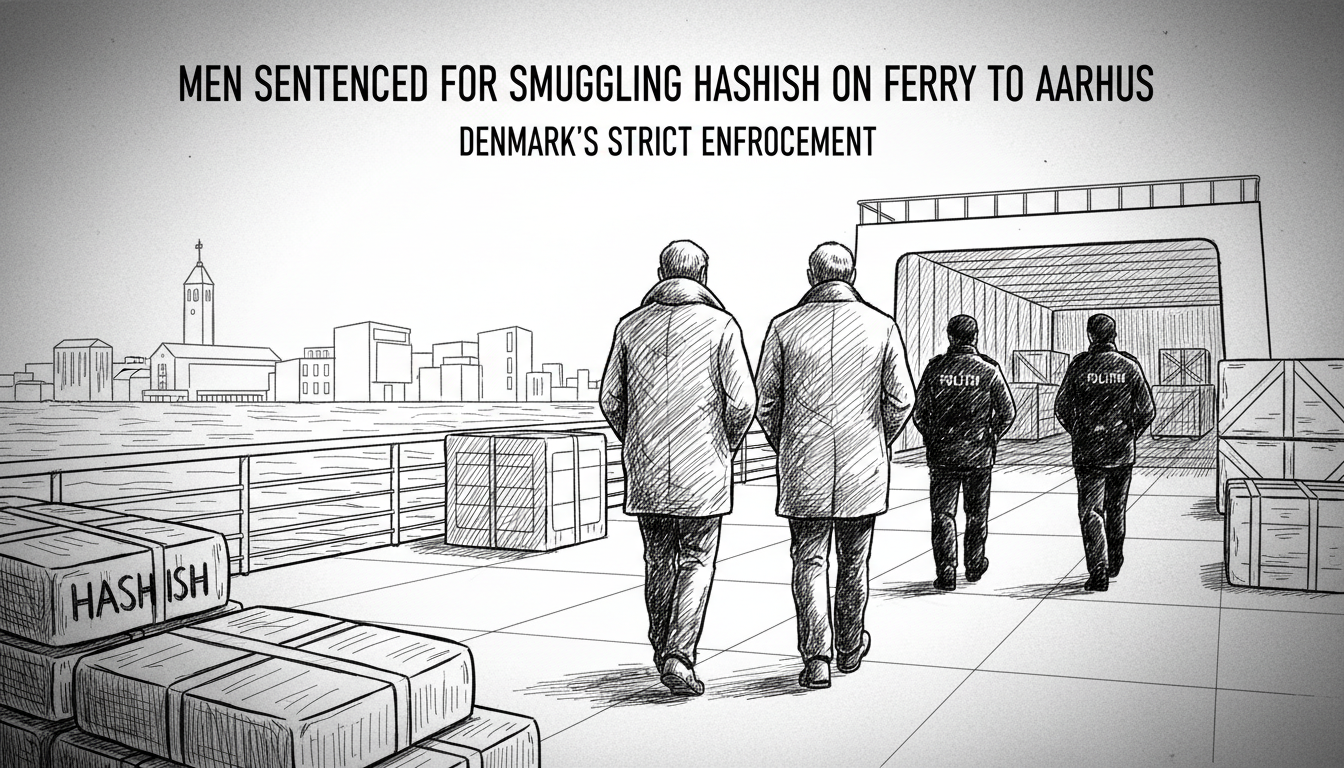Danish authorities intercepted a major drug shipment arriving by ferry in Aarhus this week. Police arrested two men carrying approximately 32 kilograms of hashish concealed in their vehicle's trunk. The suspects, aged 27 and 29, immediately confessed to drug possession during their court hearing. Both received substantial prison sentences that reflect Denmark's strict approach to drug enforcement.
The older defendant received a longer sentence due to his previous criminal record involving similar offenses. He was on probation from a prior case when arrested. This situation highlights how Danish courts consider criminal history when determining punishments. The legal system aims to prevent repeat offenses through stricter sentencing for habitual offenders.
Police operations in Danish ferry terminals have intensified recently as authorities target drug smuggling routes. The Aarhus ferry terminal connects eastern Denmark with international routes, making it a potential entry point for controlled substances. Local law enforcement maintains regular patrols and responds to tips about suspicious activities around transportation hubs.
This case demonstrates ongoing challenges in Danish society regarding drug enforcement and border security. While Denmark maintains progressive policies in many social areas, drug offenses carry serious consequences. The country's legal system distinguishes between minor possession for personal use and large-scale trafficking operations like this case.
Integration challenges sometimes intersect with criminal activities in Danish cities. Some communities face difficulties with employment and social inclusion, though authorities emphasize that crime rates don't correlate directly with immigration backgrounds. Social centers in municipalities like Aarhus work to prevent criminal involvement through education and employment programs.
Danish welfare systems include rehabilitation services for substance abuse, but trafficking operations face aggressive prosecution. The police response to this tip shows effective coordination between community information and law enforcement action. Such cooperation helps maintain public safety while addressing underlying social issues that can contribute to criminal behavior.
The sentences reflect Denmark's balanced approach to drug policy—combining strict enforcement against dealers with health-focused solutions for users. This case involved professional-level trafficking quantities rather than personal use, triggering the severe penalties under Danish narcotics laws.

